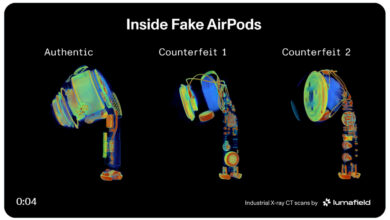Linux Security Alert: Critical Backdoor Discovered in XZ Utils Library

Recently, Red Hat issued Linux Security Alert, a serious warning for users of Fedora Linux versions 40, 41, and Rawhide. They alerted about a dangerous security problem with the XZ Utils package. This flaw, known as CVE-2024-3094, is a big threat to Linux systems and needs quick action.
Table of Contents
The Backdoor Discovery of Linux Security Alert
The XZ Utils library, previously known as LZMA Utils, is a popular data compression tool widely used in Linux distributions. Unfortunately, two versions of this library—5.6.0 (released on February 24) and 5.6.1 (released on March 9)—have been compromised with a secret backdoor.
The malicious code embedded in the library allows unauthorized remote access. Here’s how it works:
- Complex Obfuscation: Through a series of intricate obfuscations, the build process extracts a prebuilt object file from a disguised test file within the source code. This object file is then used to modify specific functions in the liblzma code.
- Interception and Modification: The modified liblzma library intercepts and modifies data interactions with any software linked against it. Specifically, the nefarious code targets the sshd daemon process (used for SSH authentication) via the systemd software suite.
- Remote Hijacking: The ultimate goal of this backdoor is to inject code into the OpenSSH server (SSHD) running on the victim machine. Specific remote attackers, possessing a particular private key, can send arbitrary payloads through SSH. These payloads execute before the authentication step, effectively hijacking the entire system.
Attribution and Repository Actions
- Discovery: Microsoft engineer and PostgreSQL developer Andres Freund discovered and reported the issue.
- Malicious Commits: The heavily obfuscated code was introduced over several weeks through source code commits to the Tukaani Project on GitHub by a user named Jia Tan (JiaT75).
- GitHub’s Response: GitHub, owned by Microsoft, promptly disabled the XZ Utils repository maintained by the Tukaani Project due to a violation of its terms of service.
Impact and Mitigation
- Severity: The supply chain compromise has a CVSS score of 10.0, indicating maximum severity.
- Affected Distributions: Evidence suggests that the compromised packages are present only in Fedora 41 and Fedora Rawhide. Other distributions like Alpine Linux, Amazon Linux, Debian Stable, Gentoo Linux, Linux Mint, Red Hat Enterprise Linux (RHEL), SUSE Linux Enterprise, Leap, and Ubuntu remain unaffected.
- Recommendations:
- Fedora Linux 40 users are advised to downgrade to a 5.4 build as a precaution.
- No active exploitation has been reported yet, but vigilance is crucial.
Conclusion
The Linux Security Alert emphasizes the importance of maintaining supply chain integrity. System administrators and developers must stay informed, apply patches promptly, and uphold a robust security posture. As the open-source community addresses this issue, users should remain vigilant and take necessary precautions to safeguard their systems against potential threats.
You Might Also Like To Read
FAQ’s
What is a Linux Security Alert?
A Linux Security Alert is a notification issued by organizations like Red Hat to warn users about critical security vulnerabilities affecting Linux systems, emphasizing the urgency of addressing them.
How do I stay updated on Linux Security Alerts?
You can stay updated on Linux Security Alerts by subscribing to mailing lists, following relevant security blogs, and regularly checking official Linux distribution channels for announcements.
What should I do if I receive a Linux Security Alert?
Upon receiving a Linux Security Alert, take immediate action by reviewing the details provided, applying any recommended patches or updates, and implementing additional security measures as advised.
Why is it important to heed Linux Security Alerts?
Heeding Linux Security Alerts is crucial because they highlight vulnerabilities that could pose significant risks to Linux systems if left unaddressed, helping users prevent potential security breaches and data compromises.
How can I mitigate the impact of a Linux Security Alert?
To mitigate the impact of a Linux Security Alert, regularly backup your data, enforce access controls, monitor system logs for suspicious activities, and implement intrusion detection systems to detect and respond to security threats promptly.




